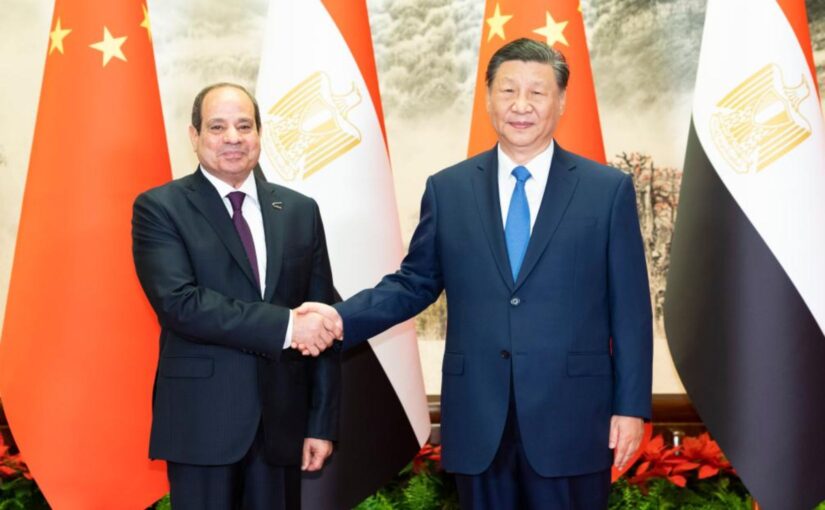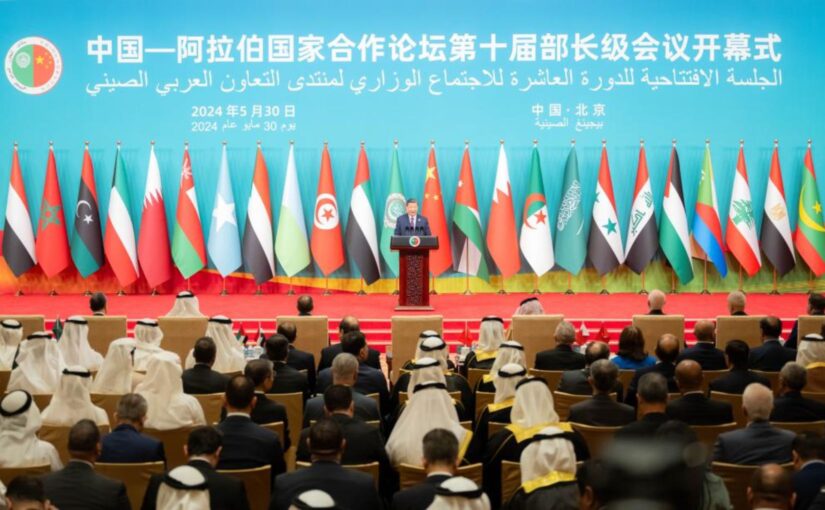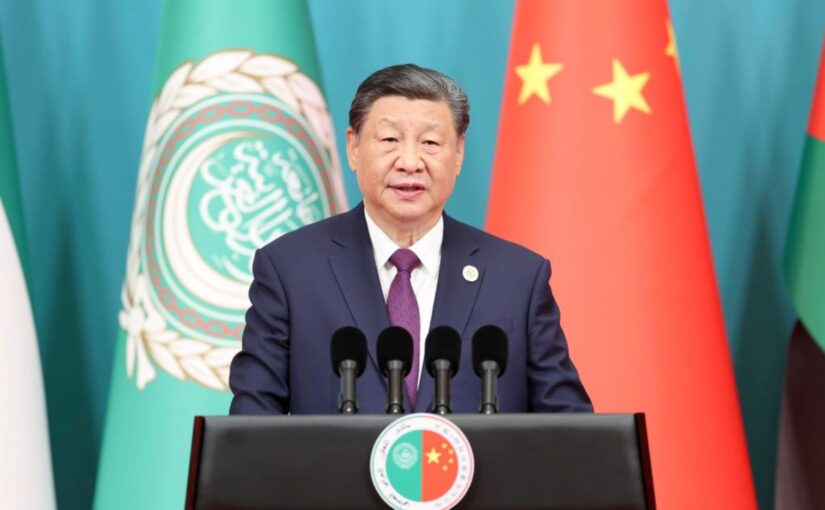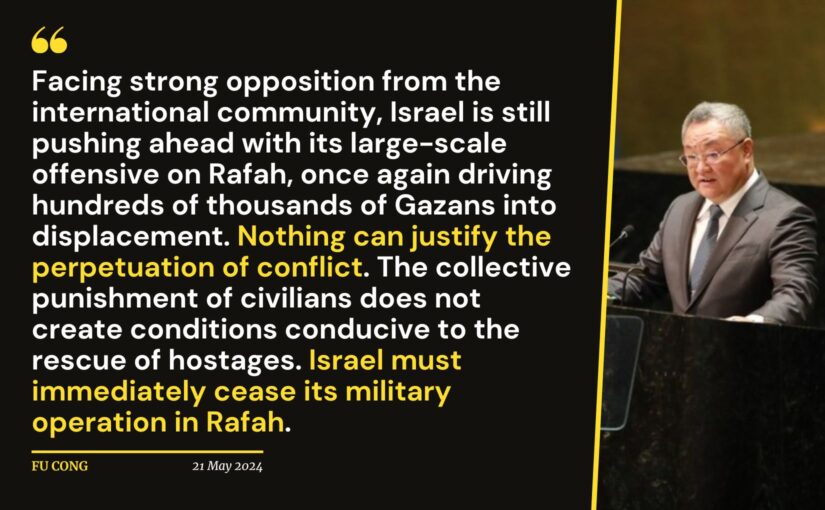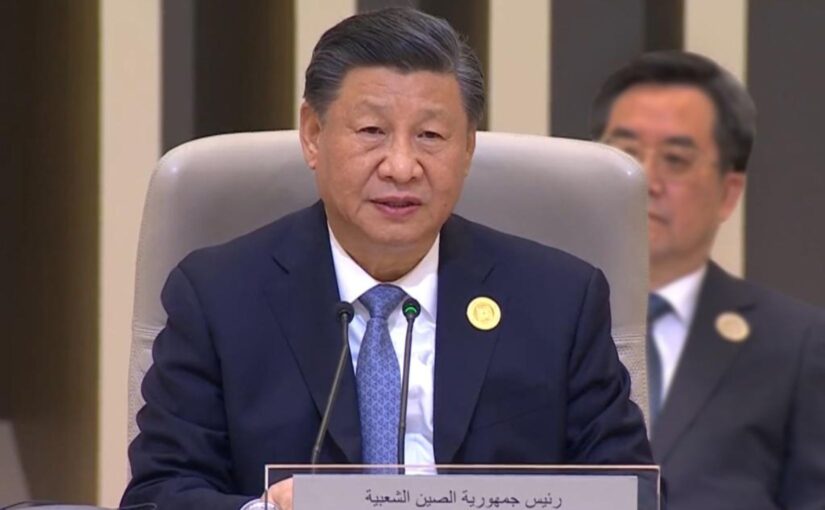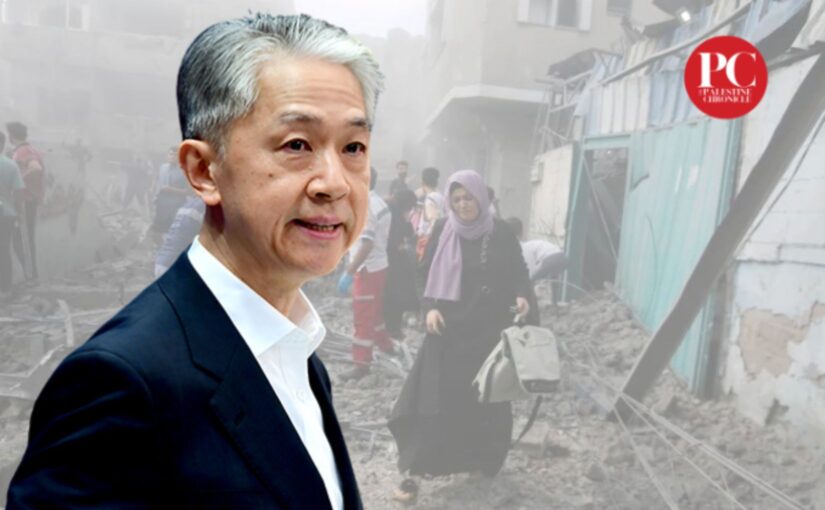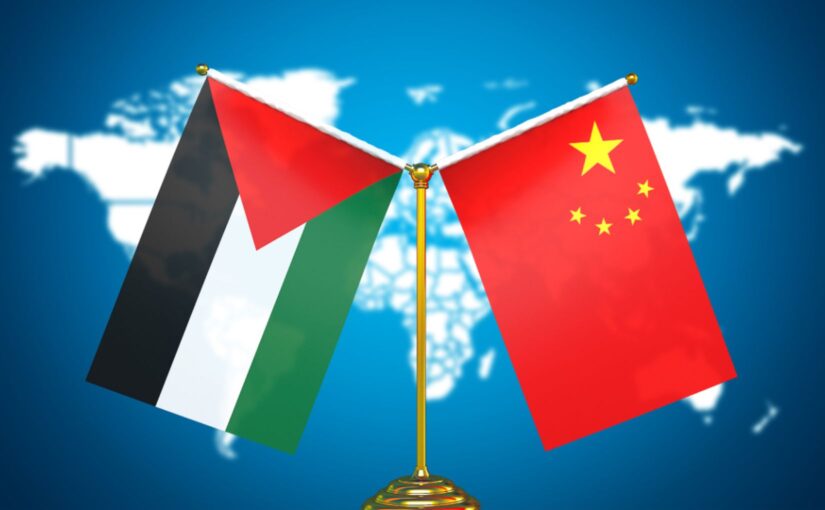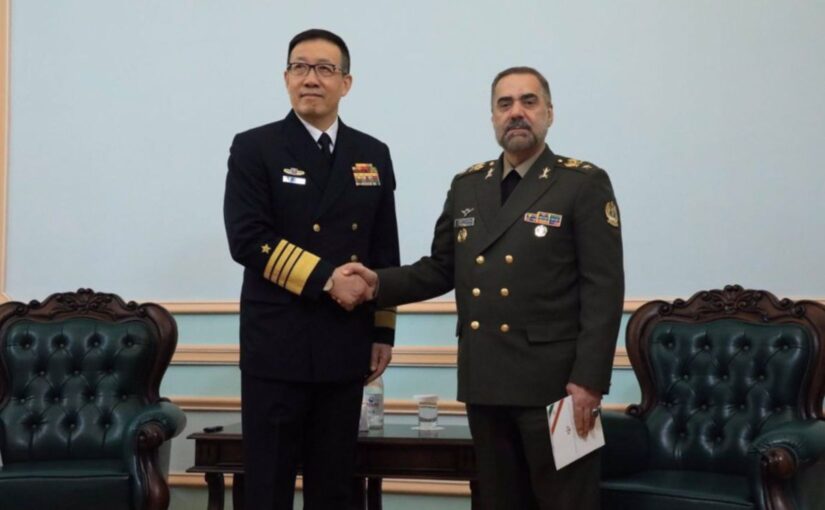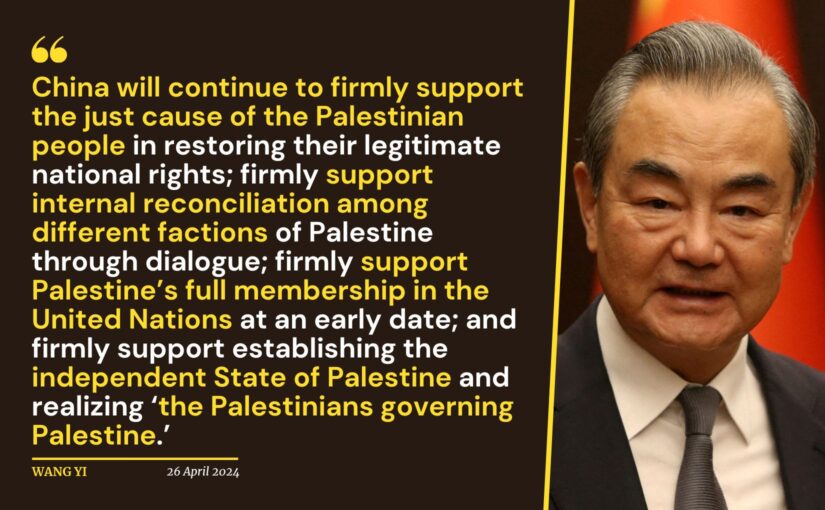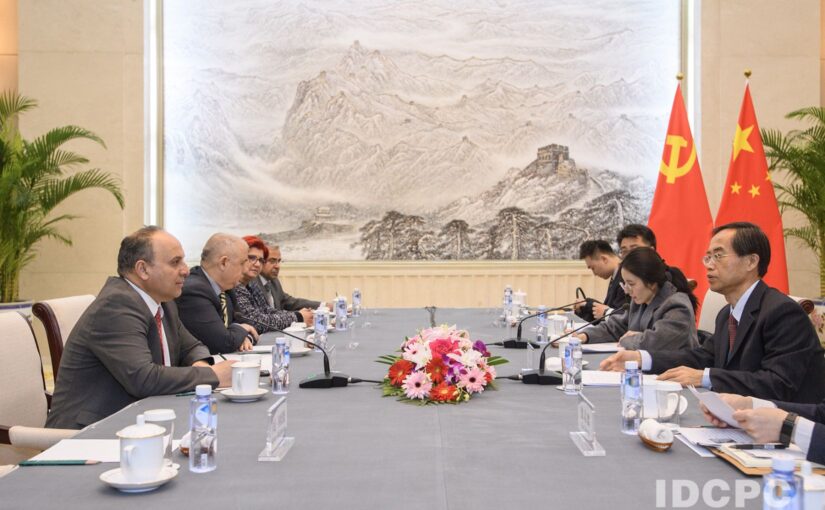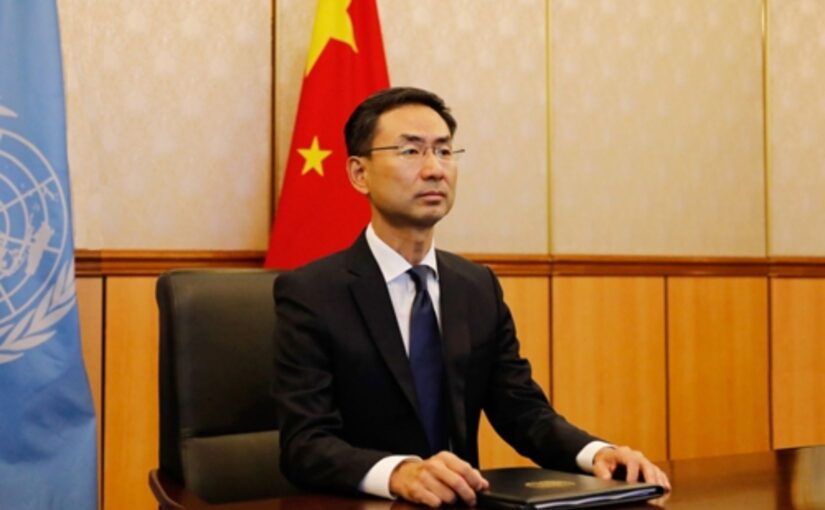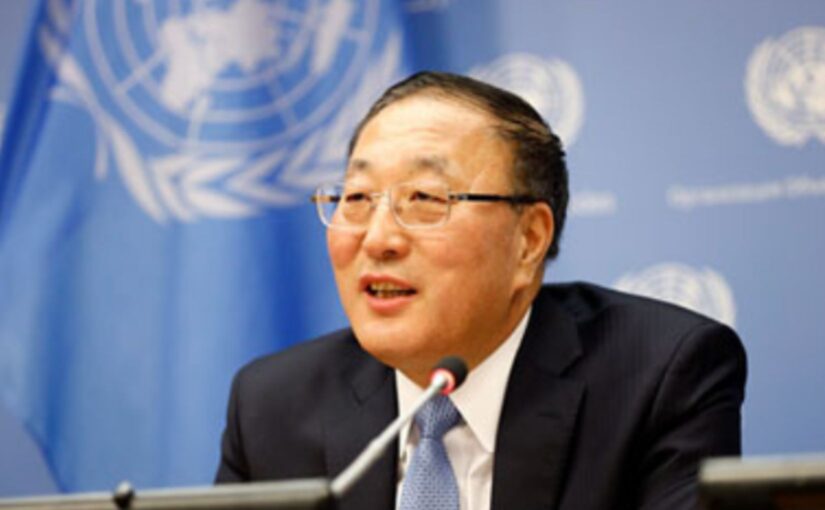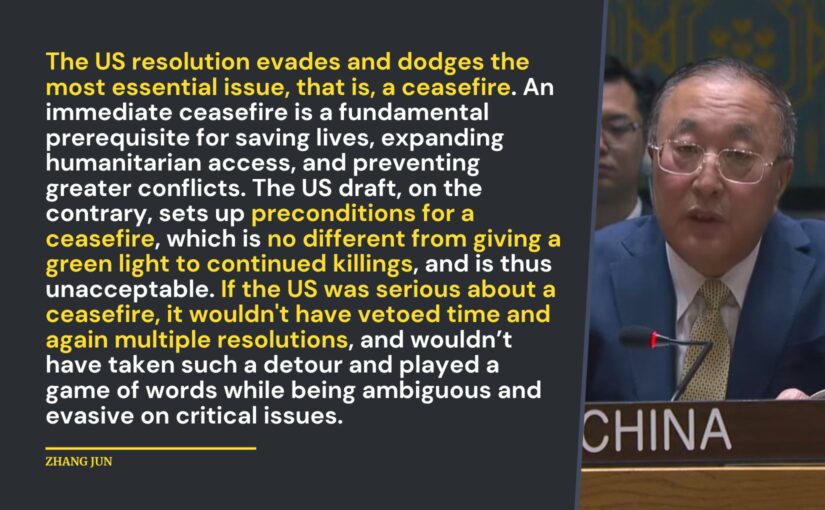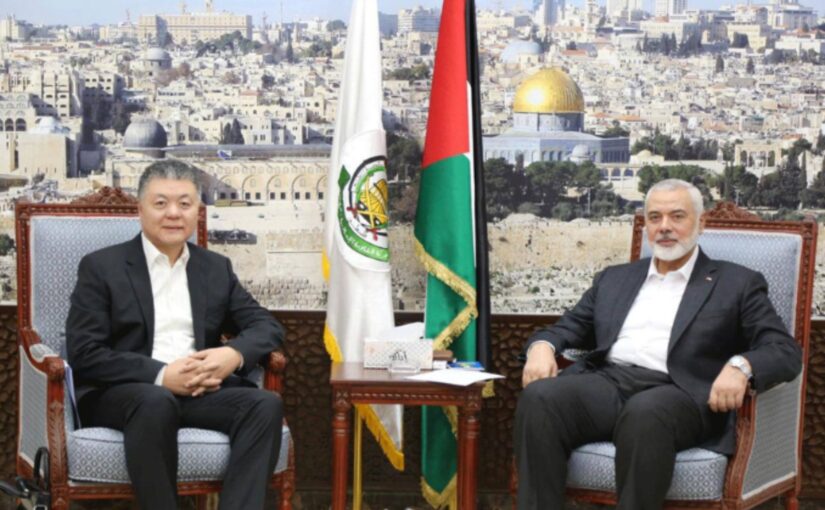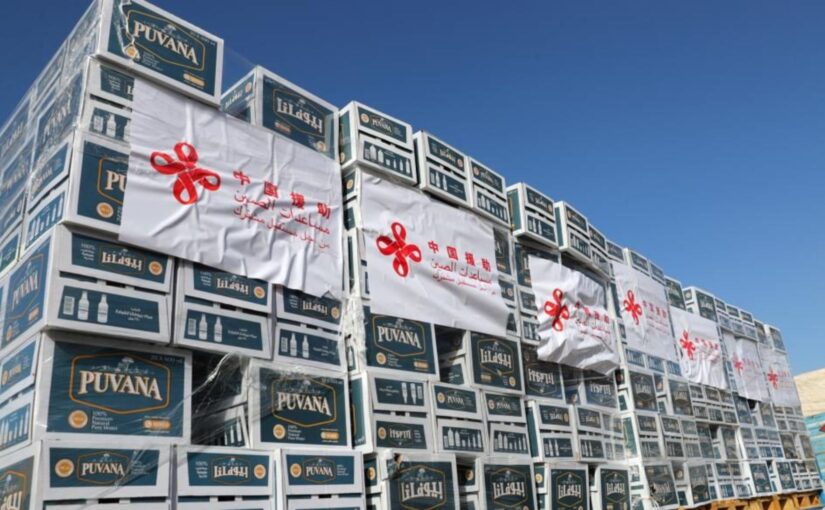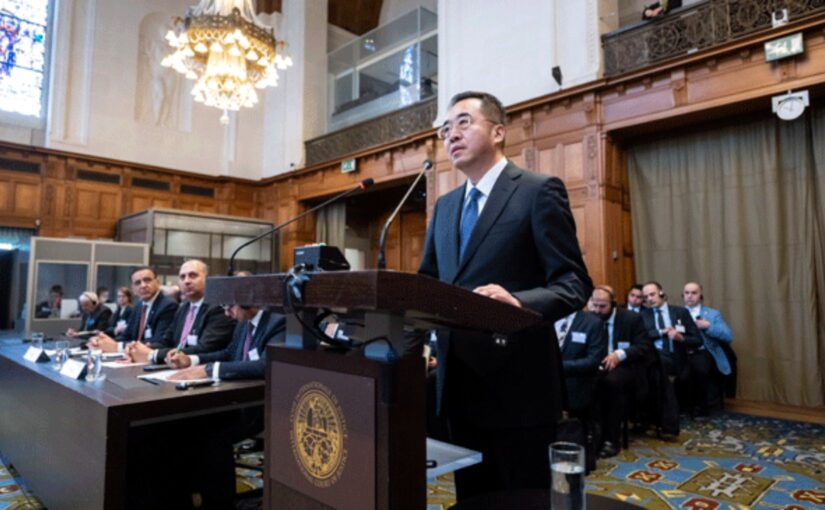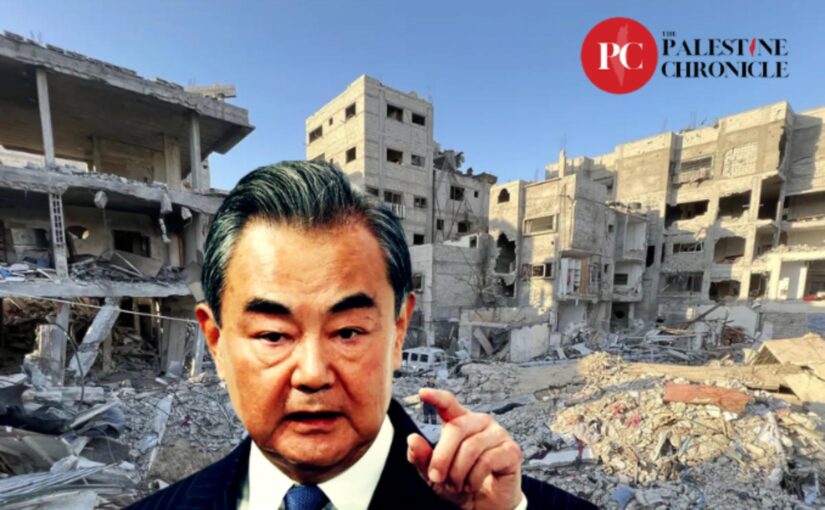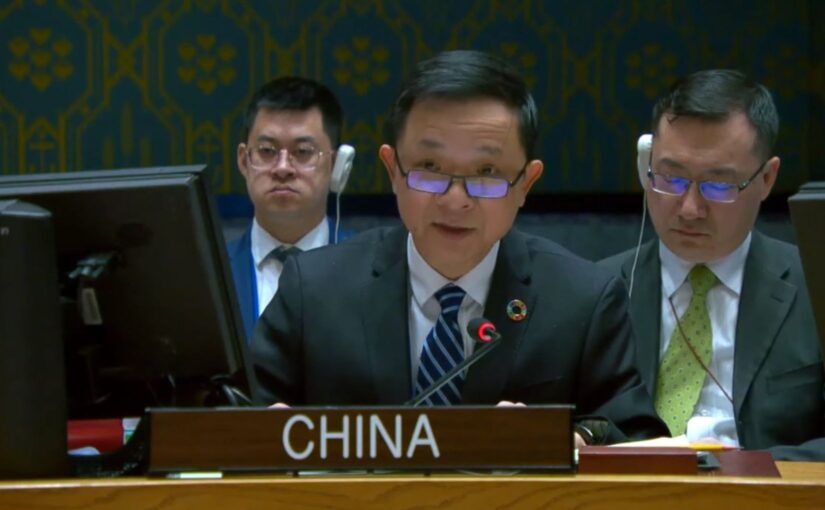Following an April 26 meeting of the defence ministers of the Shanghai Cooperation Organisation (SCO), held in the Kazakh capital Astana, Iran has expressed appreciation for China’s position and understanding regarding its April 13 missile and drone attack on Israeli military targets, in response to Israel’s April 1 attack on the consular section of Iran’s embassy in the Syrian capital, Damascus.
Meeting with his Chinese counterpart Dong Jun on the sidelines of the conference, Iranian Defence Minister Brigadier General Mohammad Reza Ashtiani hailed China’s stance on the ongoing developments in the region and its condemnation of Israel’s terrorist airstrike against Iran’s diplomatic premises. It is necessary, he said, for Iran and China to boost cooperation and convergence to solve security issues in the region and across the world.
Dong Jun, for his part, slammed Israel’s attack on Iran’s diplomatic premises in Syria, which he said violated international law. China supports Iran’s legitimate right to respond to Israel, he added. He invited his Iranian counterpart to take part in a security conference in Beijing and called for enhanced bilateral cooperation in the defence and military arenas.
Besides his meeting with Ashtiani, the Xinhua News Agency reported that Dong also held bilateral meetings with his counterparts from Pakistan, Russia, Kyrgyzstan, Belarus, Uzbekistan and Tajikistan, during his stay in Kazakhstan.
Earlier, on April 15, following the Iranian action, Chinese Foreign Minister Wang Yi held phone talks with his Iranian and Saudi counterparts. Preserving the Saudi-Iranian rapprochement, which was brokered in Beijing last year, is a clear priority for China’s diplomacy and also serves to safeguard the peace process in Yemen, assists in ending conflict in Syria and impedes any American scheme to impose a one-sided deal with Israel that would negatively impact the struggle of the Palestinian people and that of the countries and peoples in the region against imperialism and Zionism.
Iranian Foreign Minister Hossein Amir-Abdollahian briefed Wang on Iran’s position on the attack on its consulate, saying that the UN Security Council did not make a necessary response and that Iran has the right to self-defence in response to the violation of its sovereignty. The Iranian side calls for an immediate ceasefire in Gaza and supports China’s active efforts to push for this as well as to restore regional peace and strengthen cooperation among regional countries.
Wang Yi said China strongly condemns and firmly opposes the attack on the consular section of the Iranian embassy in Damascus, regarding it as a serious violation of international law and unacceptable.
China has noted Iran’s statement that its action taken was limited and was an act of self-defence in response to the attack. China appreciates Iran’s stress on not targeting regional and neighbouring countries as well as its reiteration on continuously pursuing a good-neighbourly and friendly policy. It is believed that Iran can handle the situation well and spare the region further turmoil while safeguarding its own sovereignty and dignity.
China is willing to maintain communication with the Iranian side and jointly push for a comprehensive, just and lasting settlement of the Palestinian issue, Wang added. China and Iran are comprehensive strategic partners, and China is willing to steadily advance practical cooperation with Iran in various fields for a greater development of bilateral relations.
Wang Yi told his Saudi counterpart Faisal bin Farhan Al Saud that China has noticed Iran’s emphasis that its counterattack does not target any neighbouring country and that it is willing to continuously pursue a good-neighbourly policy.
This round of escalation is the latest manifestation of the spillover of the Gaza conflict, the Chinese Foreign Minister noted, adding that the top priority now is to strictly implement UN Security Council Resolution 2728, immediately realise an unconditional and lasting ceasefire, effectively protect civilians, and ensure humanitarian assistance.
The Palestinian people have long been unable to realise their legitimate national rights, which constitutes the most enduring injustice in modern times, and is the root cause of the Palestinian-Israeli issue, as well as the core of the Middle East issue.
For his part, Faisal said Saudi Arabia and China hold highly consistent positions on the current situation in the Middle East, noting that both countries stand for resolving differences through dialogue and are committed to maintaining peace and stability.
Saudi Arabia fully trusts China and is willing to push for the sustainable development of bilateral cooperation, he added.
The following articles were originally published by Press TV and the Xinhua News Agency.
Iran, China discuss military cooperation; Beijing backs Tehran’s ‘legitimate’ strikes against Israel
26 April (Press TV) — Iran and China’s defense chiefs discussed ways to enhance military cooperation, also conferring on regional issues.
Iran’s Defense Minister Brigadier General Mohammad Reza Ashtiani met with his Chinese counterpart Dong Jun on the sidelines of the 21st meeting of the Shanghai Cooperation Organization (SCO) Defense Ministers in Astana, Kazakhstan, on Friday.
Ashtiani hailed China’s stance on the ongoing developments in the region and its condemnation of Israel’s terrorist airstrike against Iran’s diplomatic premise in the Syrian capital of Damascus earlier this month.
It is necessary for Iran and China to boost cooperation and convergence to solve security issues in the region and across the world, the Iranian defense chief said.
On April 1, the Israeli regime carried out terrorist airstrikes on the consular section of Iran’s embassy in the Syrian capital, which killed two generals of the Islamic Revolution Guards Corps (IRGC), Brigadier General Mohammad Reza Zahedi and General Mohammad Hadi Haji Rahimi, as well as five of their accompanying officers.
In retaliation, the IRGC targeted the occupied territories on April 13 with a barrage of drones and missiles. The retaliatory strikes, dubbed Operation True Promise, inflicted damage on Israeli military bases across the occupied Palestinian territories.
Following the reprisal, Iran warned Israel against taking any retaliatory actions and also urged the US to try not to involve itself in the conflict and signaled that it viewed the matter as “concluded.”
China supports Iran’s retaliatory airstrikes against Israel: Dong
The Chinese defense minister, for his part, slammed Israel’s attack on Iran’s diplomatic premises in Syria, which he said violated international law.
China supports Iran’s legitimate right to respond to Israel, Dong added.
He invited his Iranian counterpart to take part in a security conference in Beijing and urged for enhanced bilateral cooperation in defense and military arenas.
The Chinese defense chief called for an immediate ceasefire in the war-stricken Gaza Strip and the delivery of humanitarian aid there.
At least 34,356 Palestinians, mostly children and women, have been killed and 77,368 people wounded in the war that Israel began on October 7 following a retaliatory operation by the Palestinian territory’s resistance movements.
The brutal military onslaught enjoys unreserved military and political support on the part of the Israeli regime’s Western allies, including the United States and France.
Chinese, Iranian FMs hold phone talks on Israel-Iran tensions
BEIJING, April 16 (Xinhua) — Chinese Foreign Minister Wang Yi and his Iranian counterpart, Hossein Amir-Abdollahian, held phone talks on Monday regarding the tensions between Israel and Iran.
Amir-Abdollahian briefed Wang on Iran’s position on the attack on the consular section of the Iranian embassy in Damascus, Syria, saying that the UN Security Council did not make a necessary response to this attack, and that Iran has the right to self-defense in response to the violation of its sovereignty.
Noting that the current regional situation is very sensitive, Amir-Abdollahian said Iran is willing to exercise restraint and has no intention of further escalating the situation.
The Iranian side calls for an immediate ceasefire in Gaza and supports China’s active efforts to push for a ceasefire, restore regional peace and strengthen cooperation among regional countries, Amir-Abdollahian said, adding that Iran is willing to work with China for further development of Iran-China cooperation.
Wang, also a member of the Political Bureau of the Communist Party of China Central Committee, said China strongly condemns and firmly opposes the attack on the consular section of the Iranian embassy in Damascus, regarding it as a serious violation of international law and unacceptable.
China has noted Iran’s statement that its action taken was limited and was an act of self-defense in response to the attack against the Iranian consulate in Syria, Wang said.
China appreciates Iran’s stress on not targeting regional and neighboring countries as well as its reiteration on continuously pursuing a good-neighborly and friendly policy, he said.
It is believed that Iran can handle the situation well and spare the region further turmoil while safeguarding its own sovereignty and dignity, he added.
Wang said that the current situation is a spillover effect of the escalating conflict in Gaza. The pressing task now is to implement Security Council Resolution 2728 as soon as possible, achieve a ceasefire and end the fighting in Gaza, effectively protect civilians and prevent further aggravation of the humanitarian disaster, he said.
China is willing to maintain communication with the Iranian side and jointly push for a comprehensive, just and lasting settlement of the Palestinian issue, Wang said.
China and Iran are comprehensive strategic partners, and China is willing to steadily advance practical cooperation with Iran in various fields for a greater development of bilateral relations, Wang said.
Chinese, Saudi FMs hold phone talks on Middle East’s regional situation, bilateral ties
BEIJING, April 16 (Xinhua) — Chinese Foreign Minister Wang Yi and his Saudi counterpart, Faisal bin Farhan Al Saud, held phone talks on Monday regarding the regional situation in the Middle East as well as China-Saudi Arabia ties.
Wang, also a member of the Political Bureau of the Communist Party of China Central Committee, said China firmly opposes the attack on the Iranian consulate building in Syria’s capital, Damascus, which is a serious violation of international law.
China has noticed Iran’s emphasis that its counterattack does not target any neighboring country and that it is willing to continuously pursue a good-neighborly policy, Wang added.
The current situation entails a choice between deterioration and a return to normalcy, Wang noted.
Wang said China appreciates Saudi Arabia’s emphasis on resolving issues through diplomatic means, adding that China is willing to work together with Saudi Arabia to avoid further escalation of confrontation.
This round of escalation is the latest manifestation of the spillover of the Gaza conflict, Wang noted, adding that the top priority now is to strictly implement UN Security Council Resolution 2728, immediately realize an unconditional and lasting ceasefire, effectively protect civilians, and ensure humanitarian assistance.
The Palestinian people have long been unable to realize their legitimate national rights, which constitutes the most enduring injustice in modern times, and is the root cause of the Palestinian-Israeli issue, as well as the core of the Middle East issue, Wang said.
The issue should be solved by implementing the two-state solution as soon as possible, establishing an independent Palestinian state, restoring the legitimate national rights of the Palestinian people, and realizing the peaceful coexistence of Palestine and Israel, Wang said.
The international community should take more active actions to support Palestine in becoming a full member of the United Nations, promote the convening of a larger-scale, more authoritative, and more effective international peace conference, and develop a timetable and roadmap for the implementation of the two-state solution, Wang said, noting that China is willing to strengthen communication and coordination with Saudi Arabia and make joint efforts to this end.
Saudi Arabia is an important partner of China in the Middle East, said Wang, adding that China stands ready to strengthen communication and coordination with Saudi Arabia, follow through on the important consensus reached by the heads of state of the two countries, continuously deepen political mutual trust, and promote bilateral relations to higher levels.
For his part, Faisal said Saudi Arabia and China hold highly consistent positions on the current situation in the Middle East, noting that both countries stand for resolving differences through dialogue and are committed to maintaining peace and stability in the Middle East.
Faisal said that Saudi Arabia, deeply concerned about the current escalating situation in the Middle East, hopes that the situation will return to the normal track as soon as possible.
Noting that Saudi Arabia highly expects China to play an active and important role in this regard, Faisal said the Saudi side is willing to strengthen communication and coordination with China to promote an immediate and unconditional ceasefire in Gaza, start the implementation of the two-state solution, and help achieve stability in the Middle East at an early date.
Saudi Arabia fully trusts China, and is willing to push for the sustainable development of bilateral cooperation, he added.
